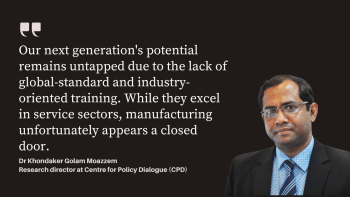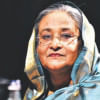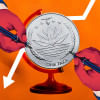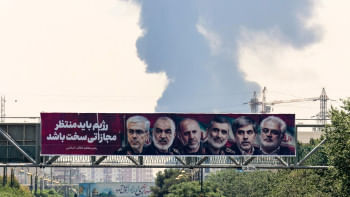Time for exporters to shed the cocoon of cash incentives

In a move to adapt to changing global economic dynamics, policymakers in Bangladesh recently announced significant changes to the country's cash assistance rates for various export items. The government has been providing cash support to the export sector—ranging from one percent to 20 percent—to enhance competitiveness on the international market. A January 30 circular by Bangladesh Bank adjusted these rates, setting the maximum at 15 percent and the minimum at 0.5 percent for the period between January 1 and June 30 this year. The adjustments include a reduction in cash assistance for key goods such as apparel, furniture, plastic products, software, and motorcycle shipments. Only businesses with specific types of export items—such as diversified jute products, vegetables, fruits, agro-processing, potatoes, and halal meat and processed meat—will get the new highest rate of 15 percent.
The changes have been met with resistance from exporters, who argue that these adjustments may diminish their ability to compete effectively in the global market, particularly due to a substantial increase in shipment costs. The concerns raised by exporters shed light on the challenges they foresee in maintaining their market share and profitability under the new incentive structure. Particularly the apparel sector, which is the major contributor to the foreign exchange reserves of Bangladesh, is said to be most affected by the move.
Despite such concerns, the adjustments are imperative as Bangladesh prepares to graduate from the least developed country (LDC) status in 2026, when continuing subsidies and incentives will not be an option anymore. Based on this, if the government has taken the move to gradually decrease direct cash assistance, then it is praiseworthy. However, the adjustments could also be due to the reduced fiscal space being experienced by the government recently. In the budget for the 2023-24 fiscal year, the government mentioned continuing the cash incentive for exporters till June 2024. However, six months after the budget announcement, this sudden measure of reducing cash support has given rise to some practical problems for exporters. Hence, they apprehend loss of business as their costs and revenue have relied on the incentive package delineated in the budget document.
While exporters' reasoning is sensible, they also have to be prepared for the coming days when Bangladesh will have to comply with the rules of the World Trade Organization (WTO) and cease providing cash incentives. They have been receiving incentives for a long period and, by now, many industries (including the apparel sector) have matured. Of course, special support could be provided to these businesses during economic predicaments, but not for an indefinite period—which has been the case so far.
In light of the upcoming graduation, exporters need to proactively prepare for changes. They need to diversify exports, produce high-value products, and explore new markets. This preparation is crucial in order for them to maintain their competitiveness and seize emerging opportunities in the evolving global economic landscape.
Given the difficulties faced by exporters due to the recent adjustments, the government could facilitate competitiveness in other ways besides financial incentives. This could include creating a conducive business environment, improving ease of doing business, and removing institutional bottlenecks so that the operating costs of business are reduced.
Meanwhile, given the fiscal constraints, the funds allocated for export incentives could be redirected to other critical sectors such as social safety net programmes, health, and education, thus contributing to overall economic development. This reallocation of resources will also enhance the country's resilience and help us achieve sustainable economic growth.
Instead of an abrupt withdrawal upon graduation, the government has opted for a gradual reduction of direct cash assistance. This strategic approach aims to provide a smoother transition for the export sector, allowing for adaptation and proactive measures to sustain competitiveness. However, the preparation for LDC graduation should also consider other measures such as tariff rationalisation.
In August 2023, the government made important policy changes in the new National Tariff Policy 2023 keeping in mind the upcoming LDC graduation. At the import stage, a variety of tariff types, including customs duty, regulatory duty, supplementary duty, value-added tax, advanced tax, and advanced income tax, are enforced. The average tariff protection rate was 30.58 percent in FY 2022-23 and the average import tariff rate in Bangladesh was 15.04 percent in FY 2023-24. These high tariffs are major sources of revenue, particularly when the tax as a percentage of GDP remains low. In FY 2022-23, this was only 8.2 percent against the target of 9.8 percent outlined in the FY 2022-23 budget. The other objective of high tariffs is to insulate local industries against global competition. Currently, local enterprises enjoy significant protection thanks to elevated import tariffs.
The government receives a substantial amount of its revenue from import duties imposed on raw materials, intermediate goods, and consumer goods. However, with tariff rationalisation, it will have to relinquish this income and decrease the reliance on import duties. Therefore, the new tariff policy underscores the imperative to intensify efforts towards domestic revenue collection.
It is urgent for local industries to prepare themselves to face global competitiveness. The reduction in import costs for capital machinery and intermediate goods can help, as the overall production costs will be lower. This will enable local industries to keep offering competitive pricing to consumers, leading to increased sales and revenue. The potential loss of tariff advantage can be offset by lower import costs. Therefore, tariff rationalisation can emerge as a facilitator for entrepreneurs to engage in export activities at a more competitive price. Plus, tariff rationalisation is also crucial to encourage export diversification. Currently, our export basket is much too narrow, with the apparel sector being the highest contributor.
It is important to protect local industries when they are starting out, but some Bangladeshi industries have been getting tax breaks and benefits for too long now. This is causing problems as some industries get special treatment while others do not. The national budget for FY 2024-25 must outline a clear pathway regarding such incentives for all industries since there will be very little time to prepare for the 2026 graduation by then.
Dr Fahmida Khatun is executive director at the Centre for Policy Dialogue and non-resident senior fellow on the Atlantic Council.
Views expressed in this article are the author's own.
Follow The Daily Star Opinion on Facebook for the latest opinions, commentaries and analyses by experts and professionals. To contribute your article or letter to The Daily Star Opinion, see our guidelines for submission.

 For all latest news, follow The Daily Star's Google News channel.
For all latest news, follow The Daily Star's Google News channel. 











Comments